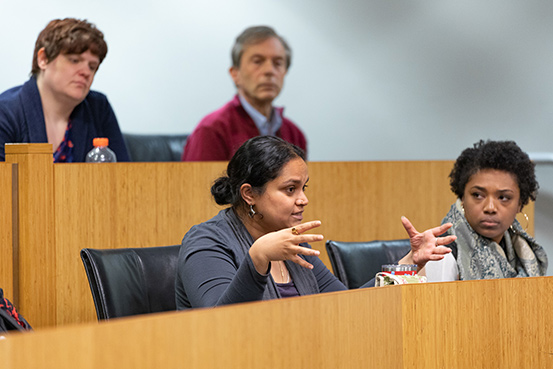Pennsylvania Attorney General Josh Shapiro visited the law school on Oct. 17 to discuss issues of federalism. As he put it: “How does a state attorney general fit into the law at a federal level?”
He began by explaining the structure of the Pennsylvania Attorney General’s Office, pointing out that it contains both lawyers and government agents, unlike local AGs where the attorneys and the police are two separate entities. They do a variety of legal work, from criminal cases such as breaking up narcotics rings to civil cases such as affirmative litigation brought against a company for harming Pennsylvanians, in addition to cases defending the PA government. However, what he called “impact litigation”—litigation that serves to provide a check on the federal government—was the focus of this discussion.
 While many are familiar with horizonal checks and balances—Congress, the Supreme Court, etc.—Shapiro explained that states also provide vertical checks and balances. He described how, through impact litigation, states can act as both a “sword to advance the rights of citizens” and a “shield to protect them from federal overreach.”
While many are familiar with horizonal checks and balances—Congress, the Supreme Court, etc.—Shapiro explained that states also provide vertical checks and balances. He described how, through impact litigation, states can act as both a “sword to advance the rights of citizens” and a “shield to protect them from federal overreach.”
He described several instances of this type of litigation, wherein he filed suit against the federal government for trying to remove legally guaranteed protections. For example, Pennsylvania recently joined California and 12 other states to stop the attempt by the Trump administration to rollback California’s Clean Air Act waiver, which allows the state to set higher emissions standards for cars. Because Pennsylvania also follows these standards, Shapiro explained, he believes that he has standing to join this lawsuit.
Following his short talk, Shapiro took questions from the audience of students and faculty members. He emphasized that “lawyers have the responsibility to uphold the rule of law, despite having policy differences,” and encouraged students to follow this maxim, whether or not they take up the mantle of public service upon graduation.